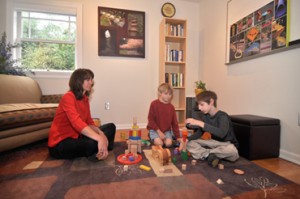Adolescent Counseling

Adolescent counseling can come in my forms. Children and teens can experience many of the same issues that adults encounter. However, their symptoms may look very different. An additional challenge for children and teens is that they have less power than adults, to create broad sweeping changes in their home lives or social circles. Symptoms in children and teens can include low self-confidence, irritability, social isolation, inability to maintain friendships, hyperactivity, acting out at home or school, poor academic performance, difficulty regulating emotions, regressed behaviors, experimenting with alcohol or drugs, increased risk-taking, issues with food, suicidal thoughts, or self-injury.
Styles for Adolescent Counseling
Therapy begins by assessing a child’s developmental stage, emotional and cognitive functioning, and social systems they live within. This helps in developing realistic treatment goals focused on reducing symptoms and improving the child’s quality of life. We examine the family and cultural system that the child is living in. In addition, counselors use those systems to support positive changes in their lives. Children and teens benefit from learning how to identify and safely express their feelings, how to develop healthy boundaries with others, and how to problem-solve challenging situations.
Play therapy is used with young, less verbal children. Play Therapy helps adolescents to express feelings, learn concepts, and develop coping skills. Older children and teens utilize experiential, eco-therapy, and cognitive behavioral therapy (talking through issues) to transform their thoughts, feelings, and sense of worth in the world. Teens can also benefit from E.M.D.R. and D.B.T. when trauma has impacted their lives. Check out our team page for therapists who provide counseling for adolescents.

